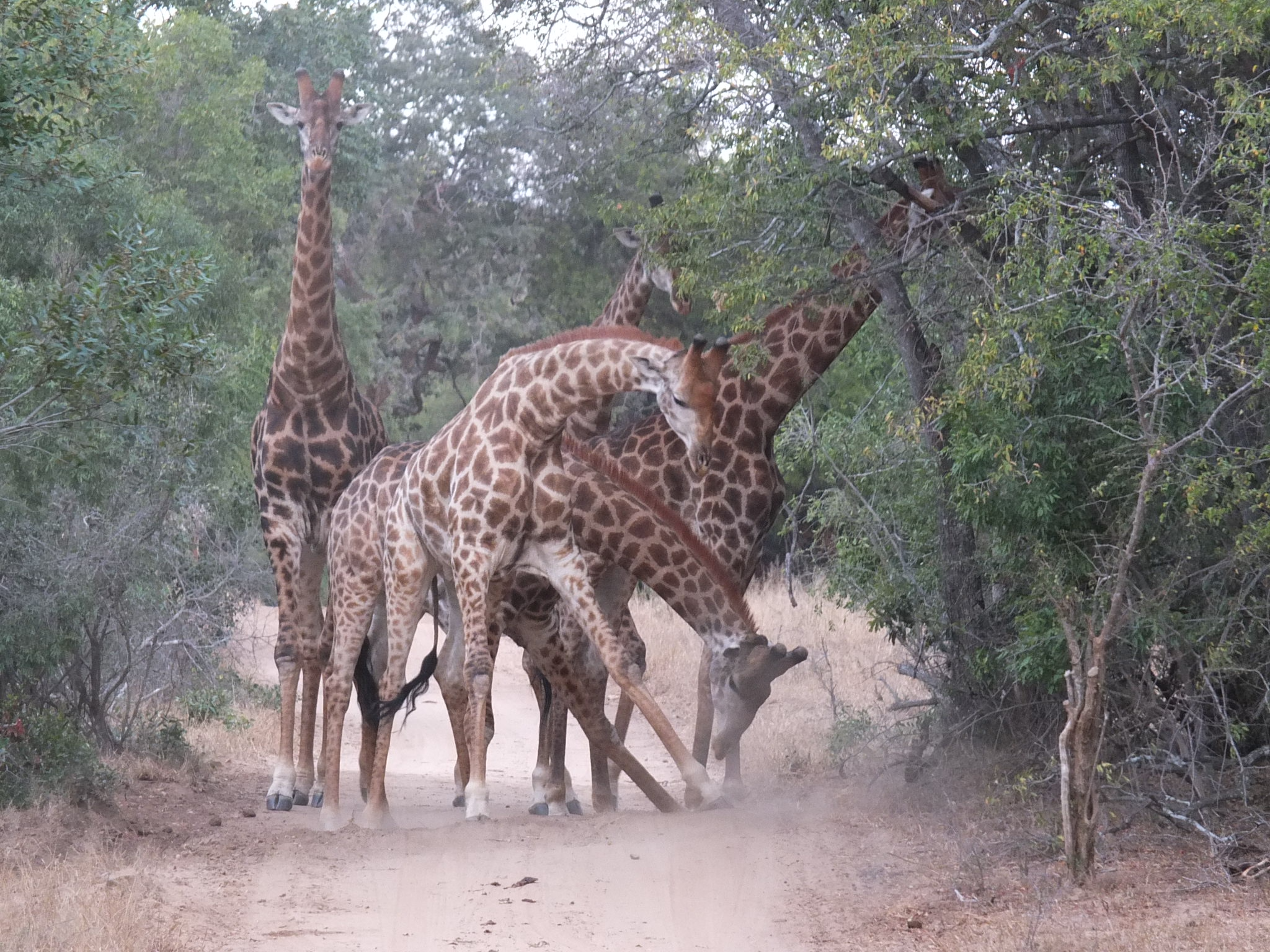By SORTEE | February 7, 2022
[SORTEE member voices is a weekly Q&A with a different SORTEE member]
Name: Wendy Thorogood.
Date: 04 July 2021.
Position: MSc Student.
Research and/or work interests: Currently studying giraffe social networks.
How did you become interested in open research?
I became interested in ORT when reading and critically reviewing articles for journal clubs as part of my Masters studies. Some papers were so uninstructive that the possibility of reproduction or even of grasping what was done was entirely missing.
What strategies/approaches do you think are most likely to lead to a research culture change?
I think if managers and leaders encouraged people to go home at reasonable hours instead of telling people you have to publish and die doing it there would be much less stress, more work-life balance, less people leaving and burning out and more happy and productive researchers around.
Do you see any downsides to some open research practices?
Yes - publishing full data sets has some huge risks for the collectors as it may allow others to use those data sets to undermine their own work by beating them to their own research goals, especially if the collectors are still collecting or are slower to publish for any number of reasons. Since data collection is not highly valued in its own right and only high profile publications are valued by the system, putting data out there could risk your own career. Potentially a better system is to put out the details of what your data set is, with a sample and invite people to inquire and have contracts for data usage for agreed purposes.
What institutional policies do you see as most important to change to improve the reliability of science? (‘institution’ broadly defined including funders, journals, universities, etc.)
Publishing needs to change. Perhaps publishers need to be part of the University system as not-for-profit institutions. Researchers should be given credit for the time spent reviewing papers and more prolific researchers should be required to review other papers proportionately. It is scandalous that so many journals not only charge researchers to publish their work but put it behind paywalls when they publish it. Researchers and Research Institutions are largely paid out of public funds and the taxpayer has virtually no ability to read what they produce.
Where were you born and raised?
I was born and brought up in the south of England.
Where is someplace you’ve never visited but would like to? Why do you want to visit there?
I would love to visit Sri Lanka, my father spent three years there in the 1950s and talked about it. I would love to see the places he mentioned.
If you could start your career over again, but had to switch to another field or subdiscipline, what would you switch to? Why?
I have changed careers several times and am finally doing something I love. If I had it all to do over I would have become a wildlife veterinarian in southern Africa. That would have been my dream job getting to work up close and personal with wildlife and helping it to survive.
Tell us about one of your hobbies.
My favourite hobby is rowing, which I started five years ago when I moved to Cambridge, England to study. It is great exercise (olympic rowers are the all-round fittest) and is low-impact compared to running around sports so is a great sport to take up later in life and keep going into your 70s and 80s. It takes place surrounded by nature in some beautiful environments. I find it a great antidote to life’s stresses. It provides me with calm, distraction, excitement when racing and a great social scene.
Do you have a favorite non-human organism? What is it and why is it your favorite?
Honey badgers are my favourite mammal as they are not very big but so fiesty. They will take on lions and leopards with gusto and usually do just fine. My favourite bird is the wren, for similar reasons. They are tiny but don’t seem to know it. They yell at you to get out of their territory regardless of your size.
What is something about you that your scientist colleagues might find surprising?
My behavioural ecologist colleagues might be surprised just how convoluted my route to where I belong was. I studied Physics, then worked in the City of London as a bank analyst, then majored in Amercan History when I returned to finish my undergrad. And that’s only half the twists and turns that got me to studying African wildlife.
What is something about your work in science that your friends outside of science (or the general public) would find surprising?
Other people would be surprised that I don’t spend all my time in the field watching giraffes, leopards and African wild dogs, but actually spend more time reading and learning how to code and use various technologies and techniques to help me do my research in front of a computer.


